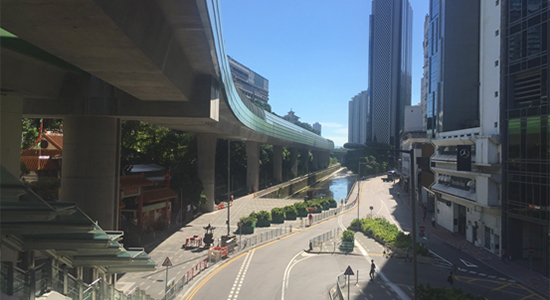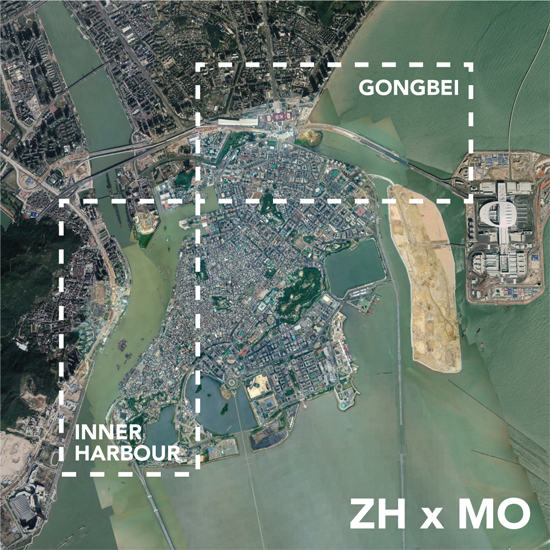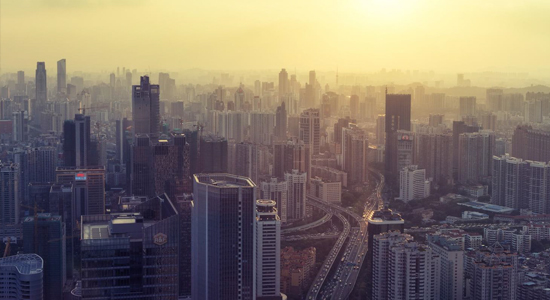Programme 2017-2018
In the coming year the M.Sc. in Urban Design programme will focus on the topic: The Entrepreneurial City. This topic has been discussed in the 1980-90, at that time focusing on “[…] the use of local governmental powers to try and attract external sources of funding, new direct investments or new employment sources” (D. Harvey, 1989). But recent questions about how to enable migrants a more successful arrival in cities and create more affordable spaces for housing and economic activities led us to the reconsideration of the topic from a new perspective. The Entrepreneurial City topic also allows us to link to the current debate on "Arrival Cities" (D. Saunders, 2011) and contribute the case of Hong Kong as an important reference..
Since its establishment as a “Free Harbor”, Hong Kong was a place for people from different cultures to arrive. Originally many migrants saw the city only as a transitional place, but then decided to stay or return. Despite Hong Kong’s difficult topography, lack of natural resources and crowded environment, newcomers were attracted by the comparably higher opportunities to take their life into their own hands, build-up businesses and thrive. However, in recent years urban renewal, increasing property prices, strict management rules as well as inflexible land use and urban typologies have constrained self-organized economic and innovative initiatives. The aim of the Entrepreneurial City Lab is to develop design and planning approaches which create affordable spaces for working and living, and encourage self-driven economic activities and social networking. Both studios and thesis with explore this topic. The first studio will focus on the regeneration of an existing area, which already has related qualities, while the second will propose the design of new areas.
Term 1:

URBAN DESIGN STUDIO I:
ENTREPRENEURIAL CITY LAB 1
Designing for Urban Prosperity
In the academic year 2017-18, the MSC in Urban Design will focus on the "Entrepreneurial City". Similar to other Asian cities, Hong Kong focuses on the development of transport infrastructure as a way to boost urban re-development and mobility as well as reduce vehicular traffic and carbon emission. However, the strategy can have negative side effects as less affluent residents and businesses might be forced out by increased property prices, a higher building density can affect the environment and the overall socio-spatial changes may reduce the local identity and community sense.To achieve with this strategy a broader urban prosperity the following questions need to be solved: How can the affected areas remain affordable and regain a sense of place, which includes old and new residents? To develop answers to these questions, the studio will explore three districts in Hong Kong - Aberdeen, Sai Ying Pun and To Kwa Wan.
The growth of cities was always been linked to how movements of people and goods interacted with particular sites. Urban centralities evolved at places where such movements met specific topographic conditions, such as waterfronts and rivers. Technological innovations of new movement systems changed existing urban areas and added new centralities.
The three sites in Aberdeen, Sai Ying Pun and To Kwa Wan were selected as they present such changes of Hong Kong, in its development from a fishing village, to an international shipping port and aviation hub. Each change was linked to economic changes and brought changes to its waterfronts, street patterns, and building typologies.
To provide a deeper understanding on the forces behind these changes the studio is linked with the courses Urban History and Theory, Urban Processes and Urban Transport Networks. Based on the knowledge provided by these courses students will be able to develop more consistent and comprehensive solutions. For instance, the course Urban Processes will explain how specific processes and actors produced the different urban forms of the sites. Here also students can learn how to communicate more effectively with different actors. The course Urban Transport Networks course will explain how the development of intermodal strategies can help to develop better public space networks. Each project will be assessed for its success to address the above outlined studio questions.
The studio is linked to the theme of the 10th Conference of the International Forum on Urbanism (IFoU) "The Entrepreneurial City", which will be hosted by the MSc in Urban Design programme in December 2017 at CUHK (ifou2017.com), and best projects may be selected for presentation at the conference and potential publication in the Journal of Public Space.
Instructor: Associate Professor Hendrik Tieben
Teaching Assistant: CHEN Yongming
(Read the course description here as PDF)
Term 2:
URBAN DESIGN STUDIO II:
ENTREPRENEURIAL CITY LAB 2
Envisioning a New Urban Paradigm - ZHUHAI X MACAU Cross Border

The studio will be conduced as a comparative studio with one theme and one site in the confluence of two different territories Zhuhai X Macau. The methodology of comparative studies will allow the students to explore different design perspectives and learn from the comparison of two different urban realities physically adjacent but administratively segregated. Conceived as an Entrepreneurial City Lab, the studio will explore innovative strategies for a future vibrant district.
Under the theme of an Entrepreneurial City Lab, the studio will use the Zhuhai / Macau Cross Border Industrial Park as a pilot case to envision a New Urban Paradigm for the PRD conceived to simultaneously favor business, shared prosperity and quality of life.
Students will start by researching the site focusing on the context of the two adjacent urban conditions from Zhuhai / Macau and on the rationale of the Cross Border Industrial Park. They will further examine outstanding contemporary urban developments, as well as contemporary urban expansions of Macau (NRLP) and Zhuhai (Hengquing) as a preparation to explore and develop innovative proposals contemplating new urban rules and guidelines for the cross border site.
Contemporary district developments are often promoted by governments with social welfare goals, by real estate developers with marketing strategies and profitability targets, or industrial corporations driven by productivity. On this studio we will take a different approach and focus on the entrepreneurial city as a place that enables and facilitates start ups, development of innovative business models, flexible to evolve over time, a vibrant urban space welcoming for foreigners and locals, a cluster for innovation with a positive impact on the immediate surroundings and on the overall city.
This studio presents a challenge and opportunity to develop uncompromising top down design strategies to enable and facilitate bottom up initiatives. This is a cross-scale studio where students will develop urban fabrics, architectural block typologies up to the urban furniture scale.
Instructor: Nuno Soares
(Read the course description here as PDF)
URBAN DESIGN STUDIO II:
FUNDAMENTALS OF URBAN DESIGN – Identity, Placemaking and Urban Analysis

Fundamentals of Urban Design is an advanced studio course in the techniques and tools of Urban Design practice. The studio focuses on two essential aspects of contemporary urbanism: Urban Analysis and Placemaking. These ideas will be critically explored at Luohu/Lowu the historic intersection of Hong Kong and Shenzhen.
The studio is part of a wider research project at CUHK investigating processes of urban analysis and scenario building that are better informed by placemaking values and community participation. Students will relate to these central ideas at all stages of their work, using the project to test and manifest their conceptual premise. Building on the urban interventions work of the First Semester, this studio allows students the opportunity to develop skills at medium to large urban scales. Each student will develop their own design in response to the brief and the studio focus. An overall proposal for the site will be made at an urban level of detail, and then tested through the relevant scales.
The studio will kick off with a series of workshops and charrettes to explore the ideas required to develop relevant designs. The programme will also incorporate an upcoming workshop in Shenzhen in January 2017, to explore urban memory in the context of rapid urbanization. This workshop studio will comprise site visits, lectures, fabrication and will culminate with a public presentation. The studio outcome will be part of urban design exhibitions in Hong Kong and Dublin in the second half of 2017.
The studio is also an internship with a practicing urban designer, providing students with the tools required to create meaningful and rigorous urban designs.
Instructor: Darren Snow